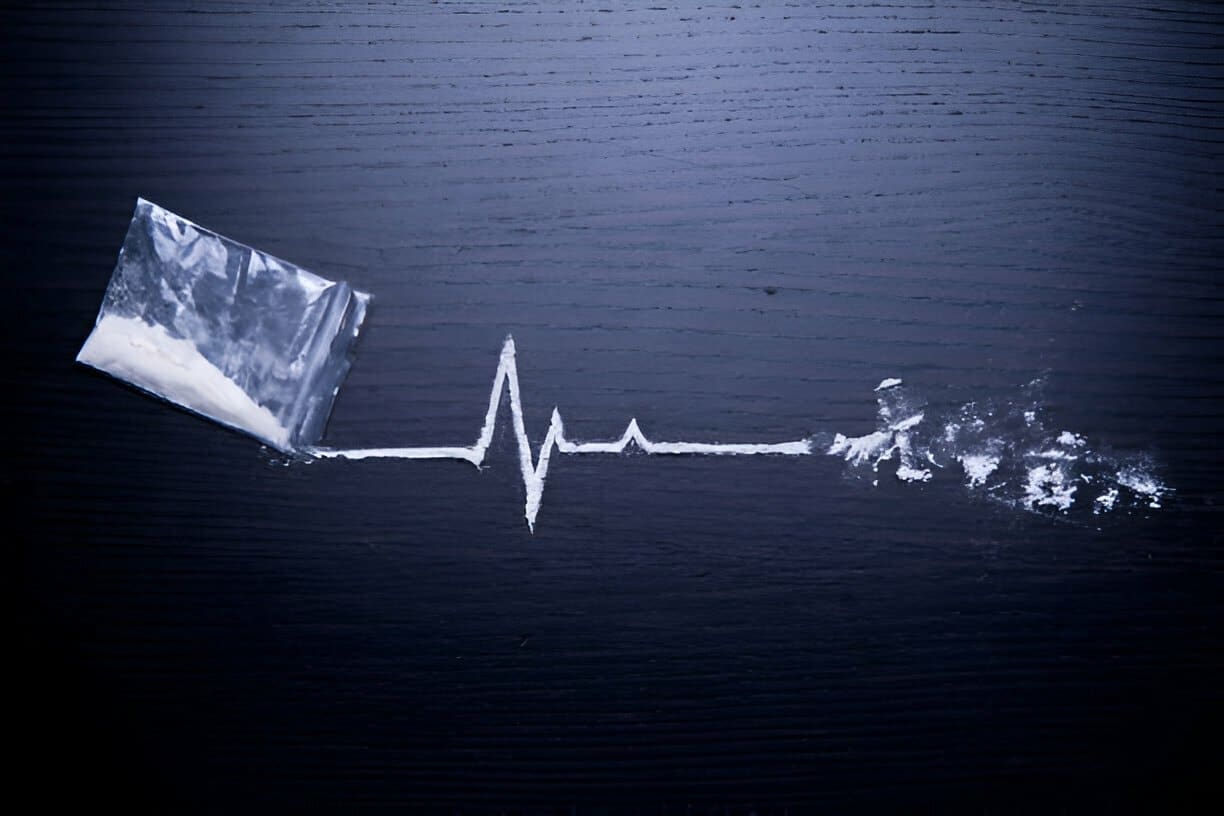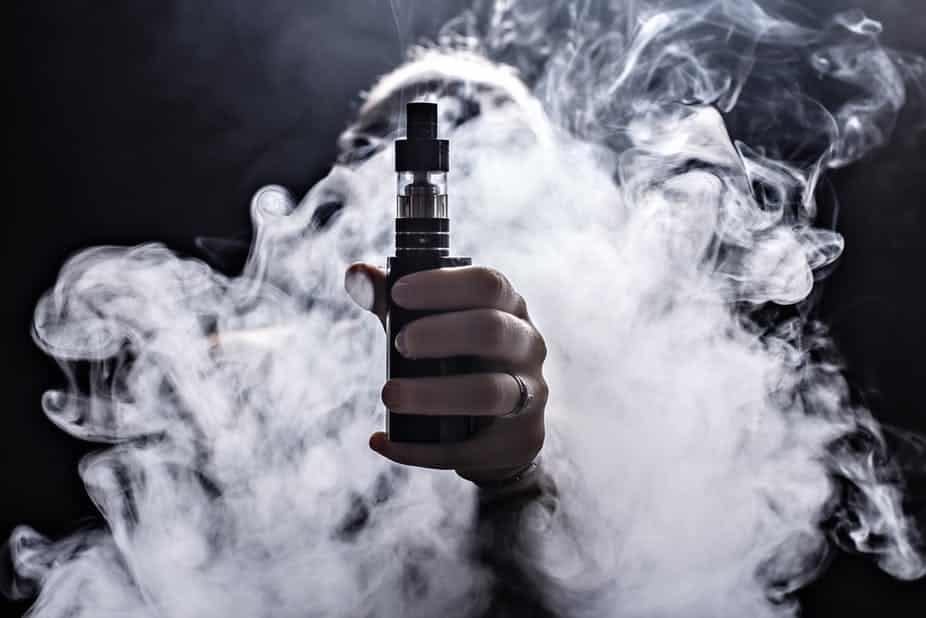Start exploring drug and alcohol rehabs today. Treatment providers are available to answer your questions.
Crack cocaine is a smokable kind of cocaine, a stimulant drug obtained from coca plant leaves. Crack cocaine is a white or off-white “rocks” with a density ranging from slightly more solid than candle wax to hard, brittle plastic, whereas cocaine is usually encountered in powder form. Smoking crack – generally through a pipe – produces a powerful euphoric “high”, and crack cocaine effects last only a few minutes. To replicate or sustain the experience, users are sometimes compelled to consume more crack only minutes after the previous dose.
Crack Cocaine has been illegal in the United Kingdom since 1971. It was first classified as Class B under the Misuse of Drugs Act 1971. However, in 2003 the government decided to reclassify the drug to Class A under the Misuse of Substances Act 1971. This means that possession of the drug carries a maximum sentence of 5 years imprisonment and a fine of £5,000.
Inhalation of crack cocaine is the primary route of administration. Users inhale the smoke produced when the powdery form of the drug is heated over a flame. Smoking crack cocaine provides a rapid onset of effect and allows the user to control the dose.
Crack is a kind of cocaine that has the same active component as cocaine. The look, method of administration, strength and duration of effect are the key distinctions between crack cocaine and classic forms of cocaine. Crack comes in the form of solid “rocks” that are smoked for a high. Powdered cocaine can also be smoked, although it has far less potency and is typically snorted, injected, or applied on the gums.
Like other drugs, crack cocaine works by stimulating certain areas of the brain. When cocaine binds to the dopamine receptor sites in the brain, it triggers an increase in the amount of dopamine released. This leads to euphoria, which gives users a sense of well-being. It also increases alertness and decreases inhibitions. Because crack cocaine acts on the brain’s reward centres, it makes people feel good and crave the drug even more.
Crack Cocaine addiction is a serious problem that requires immediate attention. Call us on 0800 999 1083 to discuss treatment options.
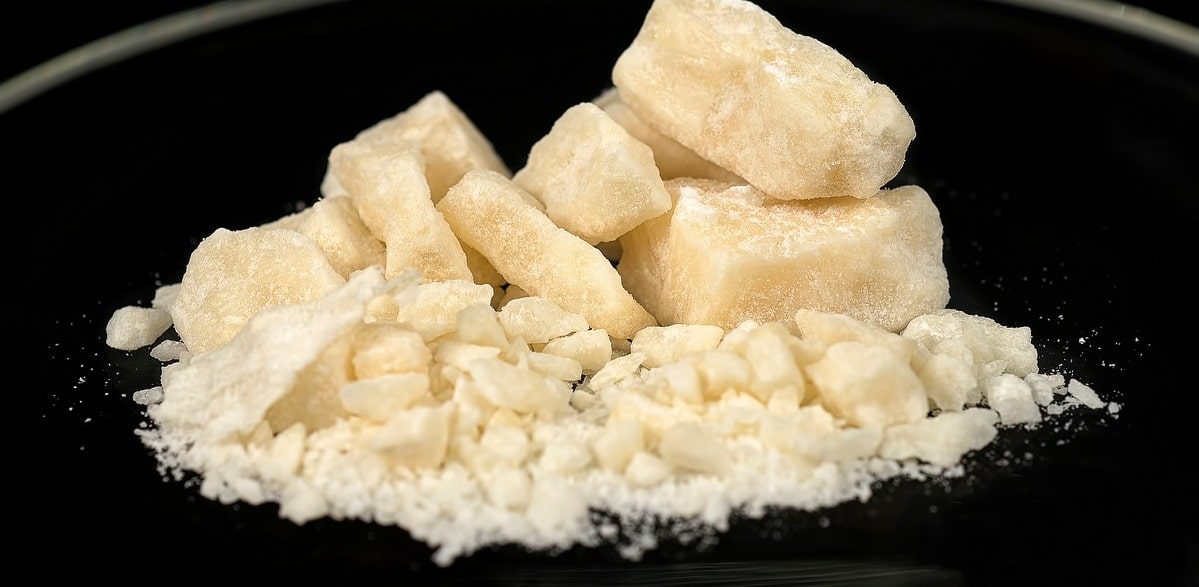
Crack Cocaine interferes with the way your brain processes information. The drug alters how neurons communicate with each other. This disrupts normal brain function.
Your brain uses two neurotransmitters to send messages from one neuron to another. One of these neurotransmitters is dopamine. Dopamine helps regulate movement, emotions, and pleasure. It also plays a role in learning and memory.
Dopamine is produced by nerve cells located in the mid-brain region. Your brain releases dopamine when you receive rewards for doing things important to you. For example, if you eat a delicious meal, your brain will release dopamine.
When crack cocaine enters your system, it blocks the action of dopamine at its receptors. This prevents your brain from releasing enough dopamine to produce feelings of pleasure. Instead, your brain sends out signals telling you that something pleasurable happened.
This causes your brain to release adrenaline, which raises your heart rate and blood pressure. Adrenaline also affects your muscles, so they contract faster. These actions help you fight or flee danger. But when you take cocaine, your brain does not get the message that there is danger. Therefore, your body does not respond appropriately.
Your brain cannot tell whether the situation is dangerous or not. This confusion causes your brain to release even more adrenaline. This lack of response can lead to panic attacks, anxiety, and depression.
If you have taken too much cocaine, you may suffer a stroke or seizure. You may experience paranoia, hallucinations, and delusions. The result is a feeling of extreme agitation and fear.
If you continue using crack cocaine, your brain loses dopamine receptors. This results in less dopamine being available to transmit messages between nerve cells. Eventually, your brain stops producing enough dopamine to keep up with demand.
As a result, you begin to crave more crack cocaine. This cycle of drug addiction becomes self-perpetuating.
Addiction is defined as a chronic disease characterised by compulsive drug seeking and use despite the negative consequences. People who suffer from addiction have developed a strong desire to take drugs or alcohol even when doing so leads to serious problems. There are many different kinds of addictions. Some people may be addicted to one type of drug, while others may be addicted to several different kinds.
A person who becomes addicted to crack cocaine develops a tolerance to its effects. That means that after taking the same amount of crack cocaine regularly, the user will need larger doses to achieve the desired effect. After some time, the user will require even higher doses of the drug. Eventually, the person will become physically dependent on crack cocaine. Physical dependence occurs when the body needs the drug just to function normally.
The most common drug abuse happens with substances that produce feelings of euphoria, such as crack cocaine. Many people believe that the sensation produced by these substances is similar to what is experienced during sexual intercourse, underestimating its negative consequences.
Don’t go through the process of recovery alone. Treatment providers can answer your questions. Get in touch with one today.
Call 0800 999 1083 today!
When you first start abusing crack cocaine, you will probably notice only physical symptoms. But if you continue to use the drug, you will eventually develop psychological and behavioural symptoms. When someone is addicted to a substance, they will also feel withdrawal symptoms when they stop taking the drug.
You may not be aware that you have developed a drug addiction until you experience withdrawal after you stop using the drug. However, there are general warning signs of crack abuse and potential addiction. Physical Signs of Crack Cocaine Addiction include:
Crack Cocaine Withdrawal Symptoms can include:
If you have used crack cocaine long enough, you may also experience psychological symptoms. You may find yourself feeling guilty about what you did while under the influence of the drug. Or you may feel depressed because you know how bad things are getting. You may even experience thoughts of suicide. If this happens, don’t ignore them. Talk to someone you trust and get help.
Some possible psychological symptoms of crack cocaine addiction include:
While many people who smoke cigarettes will try to hide their habit from others, those who use crack cocaine often flaunt their drug use. They may wear clothing that shows they’ve been smoking crack cocaine. They may carry around drugs on their person. They may leave “crumbs” of the drug behind at places they visit. This is called “tracing.” Tracing can lead to arrest if you’re caught.
Other behavioural symptoms of crack cocaine addiction:
Other criminal activityCrack Cocaine Addiction is a serious problem that requires immediate attention. Call us on 0800 999 1083 to discuss treatment options.
There are two types of factors that can affect whether you become addicted to crack cocaine. Environmental factors refer to things like living conditions and upbringing, while genes are inherited traits passed down from parents to children.
Some people inherit specific characteristics that make them more likely to become addicted to Crack Cocaine. For example, those born with low levels of dopamine receptors in the brain are more susceptible to becoming addicted to Crack Cocaine than others. This is because the body releases less dopamine when taking Crack Cocaine. In turn, this makes the user feel less pleasure while using the drug.

People who grow up in poor environments are more likely to become addicted. They may live in overcrowded homes where there is little privacy. Their families may lack parental supervision or support. And they may be exposed to violence in the home, school, or neighbourhood.
If your friends are using drugs, you are more likely to start using them too. Peer pressure can be a powerful force in causing someone to try Crack Cocaine. If you see your friends smoking the drug, you are more likely than anyone else to want to try it too.
Family members who struggle financially may use drugs to cope with financial problems. Or they may use drugs to deal with emotional pain caused by divorce or death.
Stress can lead to feelings of anxiety, depression, anger, or frustration. You may have trouble sleeping, eat poorly, or experience mood swings. Being under a lot of stress can cause you to crave drugs.
Childhood trauma has also been linked to an increased predisposition to developing an addiction later in life.
Unfortunately, like with other substance abuse disorders, people with mental health issues are more prone to get addicted to crack cocaine. Addiction is frequently preceded by major depression and anxiety.
Certain personality traits may make some people more vulnerable to developing a substance use disorder. For example, those who are impulsive, sensation-seeking, or rebellious are more likely to abuse Crack Cocaine.
If you were exposed to drugs when you were young, you’re more likely to develop a substance use disorder later in life. This is especially true if your parents used drugs during pregnancy. A baby born to a mother who uses drugs while pregnant has a higher probability of having attention, impulse control, memory, learning, and social development problems. These factors, in turn, increase their chances of developing an addiction.
Crack Cocaine Addiction is a serious problem that requires immediate attention. Call us on 0800 999 1083 to discuss treatment options.
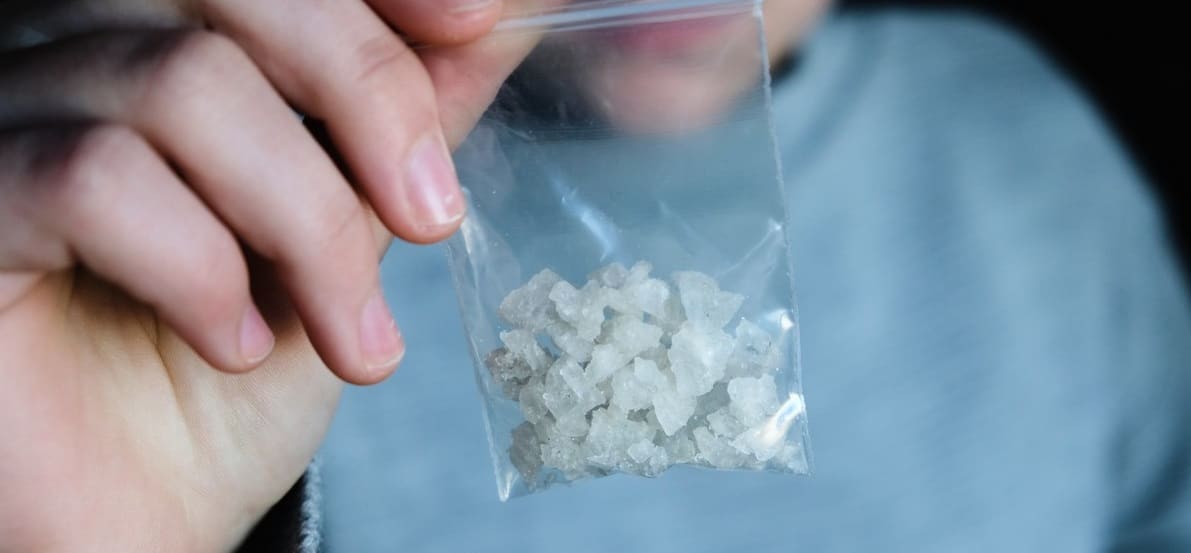
The dangers and effects of using crack cocaine vary depending on how much you take and how long you use it. The most dangerous thing about crack cocaine is that it contains chemicals that are highly addictive. If you use crack cocaine regularly, you could become addicted and dependent on it. Your body would start producing dopamine, a neurotransmitter that helps regulate pleasure and reward. When you stop using crack cocaine, your brain stops making dopamine. Without this chemical, you feel depressed and anxious.
If you get addicted to crack cocaine, you might experience some of these problems:
In addition, crack cocaine increases your risk of contracting HIV/AIDS. It also increases your chances of getting pregnant. Women who use crack cocaine during pregnancy are more likely to give birth prematurely and are more exposed to generate congenital disabilities.
Because crack cocaine has been linked to numerous health problems, including heart disease, stroke, lung cancer, liver damage, and even death, it is vital to seek help for your crack cocaine addiction. Treatment facilities offer programs explicitly designed to treat crack cocaine addiction. These programs teach patients how to cope with their addiction without resorting to illegal substances.
One of the biggest dangers associated with crack cocaine use is overdosing. When you smoke crack cocaine, a small amount goes directly to the lungs. This means that you have less time to react if you begin having trouble breathing.
When you smoke crack cocaine, your blood pressure increases, putting additional stress on your heart. In addition, the increased rate at which the drug travels through your bloodstream makes it harder for your organs to filter out toxins.
When you overdose on crack cocaine, you will experience some of these effects:
While people with Crack Cocaine abuse problems often report feeling euphoric and happy, this does not mean they feel no desire to end their lives. Research shows that crack cocaine users are at higher risk for suicide attempts than those who use only alcohol or tobacco.
If you suspect someone you care about may be abusing crack cocaine, ask them about their thoughts and feelings. If you notice changes in behaviour, mood, appearance or signs of suicidal thoughts, call emergency services immediately.
Speak to us on 0800 999 1083 to discuss treatment options and to find the best alcohol rehab centre.
Mental health disorders are common among people who abuse crack cocaine. These include depression, anxiety, bipolar disorder, schizophrenia, attention deficit hyperactivity disorder, posttraumatic stress disorder, and obsessive-compulsive disorder.
Research has shown that mental illness is one of the most critical factors contributing to the development of crack cocaine addiction. People who suffer from mental health problems are more vulnerable to becoming dependent on crack cocaine because they lack coping skills and social support networks.
In addition, crack cocaine abusers have difficulty maintaining employment. This means they cannot afford to pay for treatment services. It’s also difficult for them to find housing because landlords won’t rent to individuals who have been arrested for possession of illegal substances.
All these factors can contribute to poor mental health.
A dual diagnosis occurs when a person suffers from both a mental health problem and a substance abuse problem. Dual diagnoses are prevalent among young adults. Many people who struggle with a dual diagnosis are diagnosed with depression, anxiety, or ADHD.
Some researchers believe that the combination of mental health problems and crack cocaine abuse leads to a cycle of negative thinking and poor decision making. This makes it harder for people to cope with daily life situations.
Many people who abuse crack cocaine try to self-medicate with the drug to manage symptoms of depression and other mental health conditions. For example, some people who experience chronic pain turn to heroin or prescription drugs abuse instead of taking medications correctly prescribed by doctors.
The same thing happens when people use crack cocaine. Some people use the drug to treat feelings of sadness, loneliness, anger, or hopelessness. Others use it to deal with boredom or insomnia.
However, using crack cocaine can actually make these problems worse. When people use the drug to self-medicate, they don’t get proper medical help for their underlying mental health issues. This can lead to serious physical complications and even death.
Crack Cocaine Addiction is a serious problem that requires immediate attention. Call us on 0800 999 1083 to discuss treatment options.
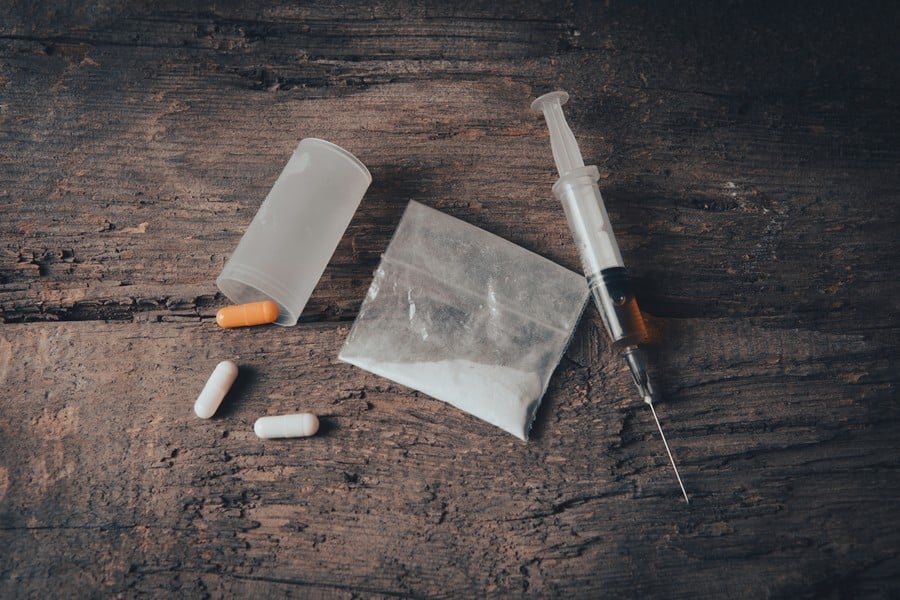
Parents should be aware of the symptoms of crack cocaine addiction in their children. The earlier parents recognise the problem, the easier it will be to treat.
Parents should watch for the following warning signs in their child:
If you suspect your child has been using crack cocaine, contact your doctor so he can provide medical advice. They can refer your teen to a treatment facility where they can learn how to deal with this problem. Your doctor can also prescribe medications to help reduce the craving for crack cocaine. In addition, they can recommend counselling programs that teach coping skills.
It is also possible to prevent your child from becoming addicted to crack cocaine. Here are some tips to help you do so:
There are many different types of crack addiction treatment programs available today. Some of these programs teach patients how to live without drugs or alcohol. Others teach patients how to cope with intense cravings and urge.

Others provide counselling services to help patients deal with underlying issues that may contribute to their addiction.
The first step towards recovery is admitting there is a problem. Once you’ve admitted you need help, you can start looking for treatment. Call us on 0800 999 1083 to discuss treatment options.
After deciding on an appropriate treatment option, you’ll begin receiving treatment. It’s important to understand what to expect during this time. Here are some things to keep in mind:
Your treatment plan will depend on several factors, including your age, gender, physical condition, and past experiences with addiction. In general, however, most treatment plans involve a combination of therapies and medications.
During treatment, it’s important always to check your health, especially if you have a history of heart disease or diabetes. Doctors will monitor your progress closely. You may need to undergo regular blood tests during treatment to ensure stable health.
The next step on the path to recovery is to enrol in a detoxification programme. Symptoms Usually Last About 2 Weeks. The person will experience withdrawal symptoms during this period because their body has been used to crack cocaine. The addict will most likely have acute cravings throughout this period. They may relapse if they don’t receive adequate care throughout detoxification.
It’s important to note that not everyone experiences extreme withdrawal symptoms after they quit using crack cocaine. Some people may experience milder withdrawal symptoms that go away within a couple of days, while others experience more severe ones.
Whatever the case may be, it’s critical to be aware of the symptoms and to have continued medical support during the detoxification process.

There are different types of rehab treatment available for crack cocaine addicts. When you decide to seek treatment, make sure you choose the right type for you.
inpatient treatment allows you to stay in a clinical setting where you receive 24-hour care from medical personnel. This option is best for individuals who require intensive monitoring during their recovery process.
These treatment centres provide 24/7 supervision and medical care. Patients stay in a facility where they receive individualised treatment. Most inpatient facilities require patients to attend 12-step meetings and participate in other forms of counselling.
Outpatient treatment lets you live at home but requires you to regularly attend therapies or counselling sessions. This method works well for individuals who don’t require constant supervision.
When undergoing treatment for crack cocaine addiction, medications are often prescribed to reduce cravings and ease withdrawal symptoms. Medication therapy is most effective when combined with behavioural therapies.
Antidepressant medication may help treat depression and severe depression caused by crack cocaine withdrawal. It should only be taken under close medical supervision.
Benzodiazepine drugs such as Ativan and Valium are commonly used to treat anxiety associated with crack cocaine withdrawal. They work by calming the nervous system.
Anti-anxiety drugs like Xanax, Klonopin, and Alprazolam may be helpful in reducing stress and anxiety related to crack cocaine addiction.
Other medications may help relieve some of the symptoms of crack cocaine addiction. Talk to your doctor about which ones might benefit you.

There are many different types of therapies available for treating Crack Cocaine Addiction. The type of treatment depends on the severity of your addiction and your personal preferences. Some people prefer individual counselling sessions, while others benefit from group therapy.
CBT is a form of psychotherapy that focuses on changing how someone thinks and behaves. CBT teaches your loved one how to identify negative thinking patterns and replace them with positive ones.
This type of therapy uses a nonjudgmental approach to encourage clients to change their lives. Motivational interviewing encourages clients to take responsibility for their own decisions.
During individual counselling sessions, you meet one-on-one with a counsellor who helps you identify your problems and develop coping skills. This type of therapy is most effective for individuals who have moderate to severe addiction issues.
Group therapy involves meeting with other addicts to discuss your recovery process. It’s beneficial for those who need support from others who share similar experiences.
Your loved one may believe that they have solved all of their problems after they leave rehabilitation. This sensation, however, is just fleeting. Your loved one must learn to sustain sobriety after leaving rehab. Unfortunately, many people addicted to crack cocaine find it difficult to overcome their addiction.
This is why it’s critical to engage the assistance of family and friends in supporting them in remaining sober. Some programs can help maintain sobriety.
These programs teach you to live life without drugs and alcohol. They focus on developing new habits and values. Twelve Step groups provide support during the early stages of recovery.
The National Treatment Agency for Substance Misuse provides information on support groups in the UK. The following organisations offer support groups for those suffering from Crack Cocaine addiction:
Crack Cocaine Addiction is a serious problem that requires immediate attention. If you suspect your loved one has a problem with Crack Cocaine, Call us on 0800 999 1083 to discuss treatment options.

If you’re addicted to Crack Cocaine, you might feel as though you’ve lost control over your life. You may be experiencing physical withdrawal symptoms. These symptoms usually subside once you enter detoxification and begin taking medications. However, if you stop taking medication before your body has fully recovered, you could experience serious health complications.
You may also feel depressed because of your addiction. Depression can cause you to lose interest in things you used to enjoy, including work and family relationships. If you suffer from depression, talk to your doctor about getting help.
You may find yourself thinking about using Crack Cocaine again. To prevent relapse, you should avoid situations where you encounter triggers. For example, don’t go back to places where you used to buy or sell drugs. Instead, stay away from people who are involved in illegal activity.
To maintain long-term sobriety, you must learn how to deal with cravings. Cravings are powerful urges that compel you to use Crack Cocaine. Try to distract yourself from them by doing something else when they occur. This helps you resist the urge to use.
When you do have a craving, eat healthy foods or drink water instead of eating or drinking anything containing caffeine or sugar. Avoid going out alone, especially late at night. Stay busy throughout the day to keep yourself distracted.
If you need to get rid of craving, try counting backwards from 100. Start by counting backwards slowly until you reach zero. Then start over again. Try not to think about what you’re trying to forget.
Triggers are events that remind you of your past experiences with Crack Cocaine. Some common triggers include seeing someone you know was arrested for selling drugs, hearing news reports about drug arrests, and being around people who smoke marijuana.
Once you complete rehabilitation, you will likely be able to live a sober lifestyle without relapsing. However, you still need to remain vigilant against relapse.
The following tips can help you avoid returning to your old ways:
Alcohol causes your body to release dopamine, which makes you want to repeat the effects of crack cocaine. While alcohol won’t give you the same rush you get from smoking crack, it can make you crave Crack Cocaine even more.
If you’re honest with yourself, you’ll realise that you’re powerless over Crack Cocaine. You can’t force yourself to quit using the drug. But you can take steps to reduce your chances of relapse. If you recognise that you’re having trouble resisting temptation, ask your addiction counsellors for advice on coping with cravings.

Your friends and family members can provide support during recovery. They can help you identify triggers and plan ahead so you won’t end up using Crack Cocaine.
It takes time to recover from addiction. It doesn’t happen overnight. Statistics show that a crack addict requires several months of treatment before they are ready to lead a normal life.
Take care of your body by exercising regularly and eating nutritious food. Also, make sure you sleep enough each night because lack of sleep can trigger feelings of anxiety and stress.
If you follow these guidelines, you should be able to stay clean and sober.
Don’t go through the process of recovery alone. Treatment providers can answer your questions. Get in touch with one today.
Call 0800 999 1083 today!
According to the Office of National Statistics, crack abuse statistics showed that 1.7 million adults aged 16 years or older living in England had used Crack Cocaine in the year ending March 2013. Of this number, 0.3% reported using the drug within the last month. In addition, 0.5% of all men and 2.9% of all women aged 16 years or older reported having used Crack Cocaine in 2012.
In 2011, the most recent year for which data is available, the Office of National Statistics estimated that the misuse of cocaine caused 7,000 deaths.

BACP accredited psychotherapist with 16 years experience working in mental health specialising in psychodynamic person-centred therapies treating those with a range of mental health disorders including anxiety, depression, OCD and Addiction.

Fill in your details and we’ll send you a message via SMS.

Crack cocaine is a highly addictive and potent stimulant that is produced through a simple conversion process from powdered cocaine. In the mid-1980s, crack became popular as a recreational drug. It's abused because it gives you a quick high and is simple and inexpensive to produce, making it easily available and affordable.
Smoking crack cocaine is a cheaper way to consume the drug because it requires less material to make compared to other methods. In addition, the drug is readily available on the street.
Smoking crack cocaine causes damage to the lungs, liver, kidneys, and cardiovascular system. Some users may also experience paranoia, anxiety, hallucinations, seizures, and strokes.
Powdered cocaine is dissolved in a solution of water, ammonia, or sodium bicarbonate to make crack (baking soda). The mixture is cooked until it forms a solid mass. The solid is separated from the liquid, dried, and then broken down into crack cocaine pieces (rocks).
Crack cocaine typically is available as rocks. Crack rocks are white (or off-white) and vary in size and shape.
Crack is nearly always smoked. When crack cocaine is smoked, huge amounts of the substance are delivered to the lungs, causing an instant and powerful euphoric effect.
Cocaine is a highly addictive narcotic in any form, and addiction appears to develop more quickly when the drug is smoked—as crack is—rather than snorted—as powdered cocaine normally is.
Crack users may experience acute respiratory problems, such as coughing, shortness of breath, lung trauma, and bleeding, in addition to the usual risks associated with cocaine use (constricted blood vessels; increased temperature, heart rate, and blood pressure; and risk of cardiac arrest and seizure). Smoking crack cocaine can also lead to violent and paranoid behaviour.
Crack cocaine is, indeed, illegal. The Controlled Substances Act classifies crack cocaine as a Schedule II substance. Schedule II drugs, which also include PCP and methamphetamine, have a high potential for abuse. Abuse of these substances can lead to severe mental and physical dependence.

No matter where you live, there are drug and alcohol rehab options for you to discover. Treatment providers are waiting to answer your questions. Get started today.

Ever felt that gnawing ache or burning sensation in your gut after a night of drinks? You’re not alone. Stomach pain after drinking is a common complaint, and there are a few reasons why it might happen. Let’s delve into the science behind the discomfort and explore ways to soothe your stomach. The Irritating Truth: … Continued

Cocaine, a stimulant known for its short-lived burst of energy and euphoria, hides a dark side. Behind the initial high lies a dangerous potential for overdose, with severe health consequences and even death. This article delves into the world of cocaine overdose, equipping you with the knowledge to recognize the signs, understand the dangers, and … Continued

Adult smoking habits in the UK refer to how often and in what ways people aged 18 and above use tobacco. This includes everything from smoking cigarettes every day to occasionally lighting up, as well as using other tobacco products. Understanding these habits is important for several reasons: Public Health: Smoking causes many diseases that … Continued

Addiction in the UK is a complex issue that is connected to various aspects of society such as healthcare and law enforcement. It affects people from all backgrounds and has negative impacts on families, communities, and the entire nation. Understanding addiction involves not only looking at the uncontrollable use of substances and repetitive behaviors but … Continued

Don’t go through the process of recovery alone. Treatment providers can answer your questions. Get in touch with one today.
Call 0800 999 1083 today!






